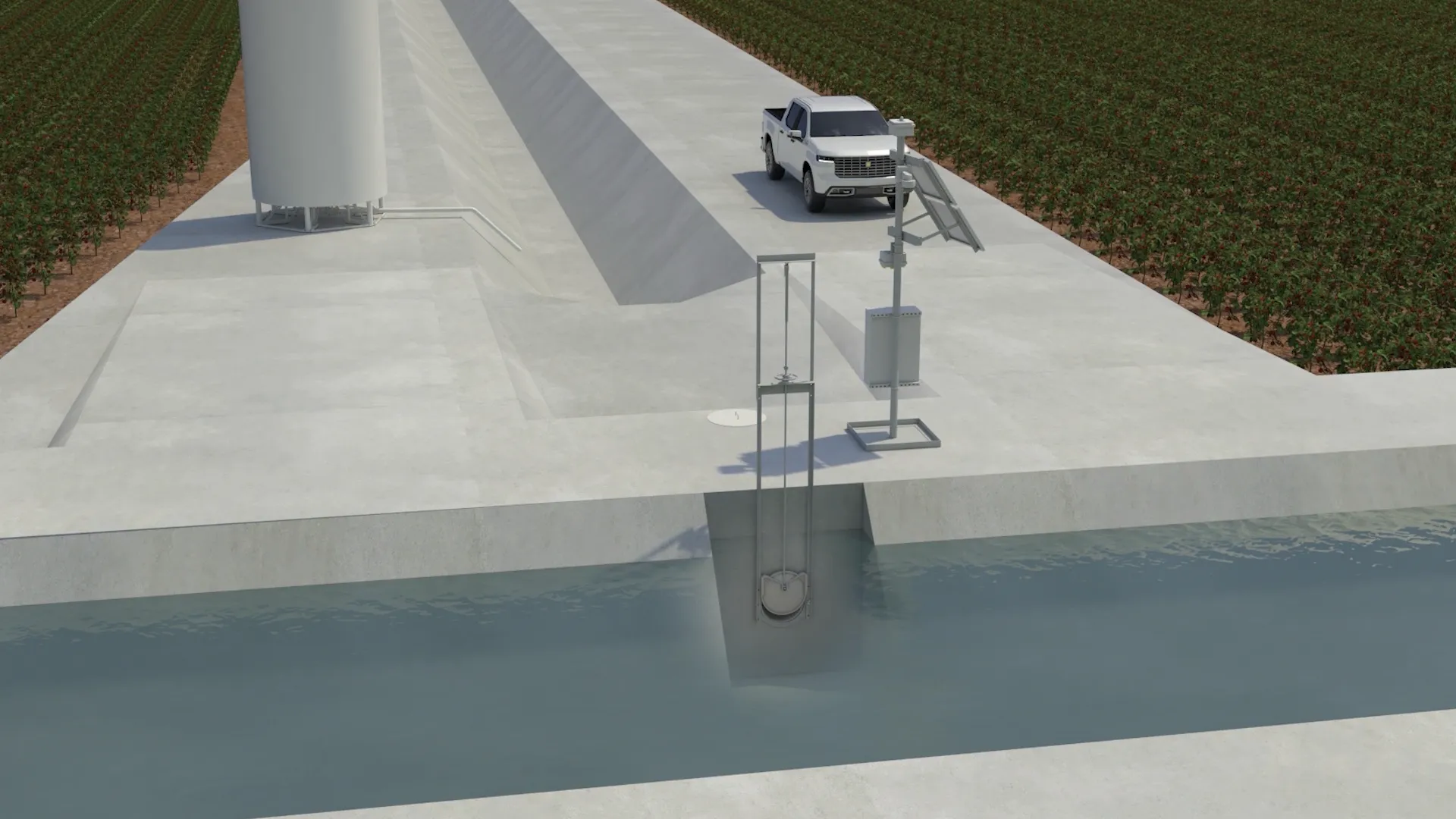RSA/replogle automated Farm Irrigation System
The System allows monitored, equitable sharing of surface water between farms and other large water users, e.g. municipalities, urban, environmental, etc.
Measures water flow into agricultural fields with +/- 2% accuracy.
Features electronic metering, including water level sensors and telemetry for fully automated operations.
The RSA Autonomous Farm Irrigation system enables the entire farm to operate autonomously, providing controlled and accurate measurements of water usage.
- Automated Gate/Metering Pipe System is mounted at the farm turnout and serves as a substitute for the manual gate
- When water order is called the gates automatically open, when filled, gates automatically close
- If irrigation needs to be curtailed early, or if there is a desire to overwater, it can be done remotely
- CCTV and data logging capable

Benefits to farmers
- Assured equitable delivery
- Improves surface irrigation application efficiency and uniformity
- May allow the farm operator to trim their delivery with assurance that it will lower their water cost
- Reduces unwanted deep percolation of highly salty water from surface to groundwater
- Reduces soil and water pollution
Benefits to Districts
- Stabilizes the delivery in the lateral
- Assures billing equity – The Farmer pays for what is accurately measured and delivered
- Generates the possibility of a conservation transfer with improvements in efficiency
- Improves surface irrigation application efficiency and uniformity to increase crop production
- Automated systems do not require District employees to open/close gates

